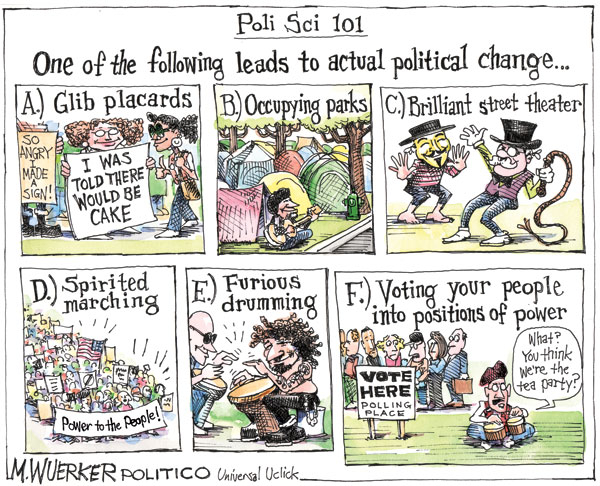Fears of Decentralization
History, Immigration, Legal System, Libertarian Theory, Police Statism, Political Correctness, Racism, Statism, Taxation, The Left, The Right, Vulgar PoliticsMany libertarians, perhaps most notably Thomas E. Woods, support the decentralization of power from the federal government, including the power of nullification. Many people fear and denounce this power, often because they like the immense power of the central state and are supporters of big government. There are, however, some very real concerns by people who desire freedom as their highest political goal. A simple question, which is asked in various forms is “if decentralization leads to more freedom, why did African slavery thrive in a more decentralized America, and only go away (well, sort of) when the central state forced it to go away?” Similar statements could be said of Jim Crow.
Tom Woods briefly addresses a critical point which bears emphasis: a major problem with decentralization is that decentralizing power may have huge negative effects for people who cannot vote. The very people who are most obsessed with them not having political power are the people who are most empowered by the receding power of the central state. This points to the people that libertarian activists should concentrate on protecting: non-citizens (including both legal and illegal immigrants) and convicted felons in states which strip them of the franchise. As most minorities have the ability to exercise the vote, the greatest evils of the past have no chance of being repeated. And some unprecedented benefits may come about. Without the significant support of the federal government, individual states could not maintain the murderous drug war at the levels at which it is currently prosecuted. Family and morals-destroying welfare programs would have to be greatly scaled back without the ability to print money. Taxes would have to be levied to pay for these things, forcing citizens to carefully evaluate just how much they wish to impoverish themselves in the attempt to eradicate various victimless crimes.
The benefits don’t end there. Freedom would be catching in this country for several reasons. Our national myths support the value of freedom. The proximity of states and the freedom of movement among them, in the face of massive differences in the amount of liberty inside them, would mean that the most inventive, industrious people would tend to leave less free areas and go to more free ones. This would impoverish the most oppressive states, further pressuring them to liberate. Perhaps the single most important factor which would allow liberty to really catch in the United States is that the US military would not be looking to crush these efforts, as it does in other countries. If liberty is to be permitted by any government, it is likely that it will have to be permitted in the USA, as the American government is among the world’s most fervent supporters of foisting government on people, whether they like it or not, in the name of “stability.”
Fears of Decentralization Read Post »

